Chinese TV channel breached rules with 'forced confession'
- Published
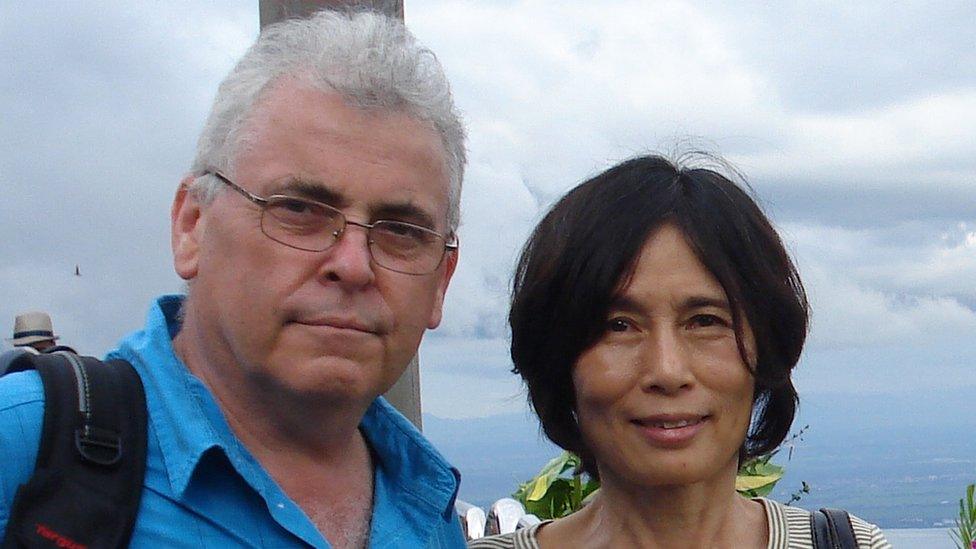
Peter Humphrey pictured with wife Yu Yingzeng
The Chinese state broadcaster has been found in breach of British broadcasting regulations for airing a UK citizen's allegedly forced confession.
Media watchdog Ofcom ruled that CGTN had been "unjust" to show footage of investigator Peter Humphrey "appearing to confess to a criminal offence".
It also upheld Mr Humphrey's complaint that his privacy had been infringed.
Ofcom said the breaches were "serious" and that CGTN (China Global Television Network) would face sanctions.
The company was named CCTV News when the two programmes found to be in breach were broadcast in 2013 and 2014 respectively.
Mr Humphrey and his wife Yu Yingzeng were arrested in 2013 for allegedly trading the personal information of Chinese citizens.
The arrest came after Mr Humphrey's company ChinaWhys had been hired to investigate bribery claims at the company and a sex tape featuring the then-head of GSK China.
Soon after the couple began their investigations, Chinese authorities accused GSK of bribing doctors to buy their medicines.
Although they were not implicated in the bribery, Mr Humphrey and his wife were found guilty of illegally obtaining Chinese citizens' data - including IDs, mobile phone numbers and travel records - and selling it to firms, including GSK China.
Mr Humphrey was sentenced to two-and-a-half years in prison in 2014 but was released the following year on health grounds.
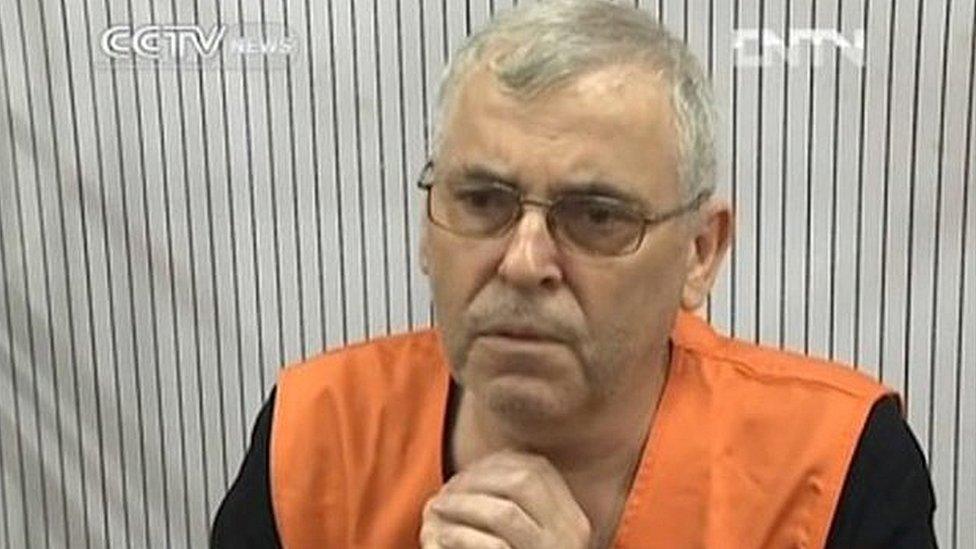
Peter Humphrey in an undated still from CCTV
After being deported, Mr Humphrey said he had been "collateral damage in a wider dispute between a company and the authorities".
He accused China's prison authorities of "parading" him in front of television cameras and denying him treatment for a prostate problem.
'Significant intrusion'
The first segment investigated by Ofcom was broadcast in August 2013, as part of the CCTV News programme China 24.
It reported that Mr Humphrey and his wife had been arrested in Shanghai, accompanied by footage of the pair with their faces obscured, being led down a corridor in handcuffs by police officers.
Mr Humphrey, again with his face obscured, was then shown speaking in Mandarin.
His words were translated into English as: "We obtained personal information by illegal means. I regret what I did and apologise to the Chinese government."
In July 2014, CCTV News broadcast a follow-up report on its News Hour programme that reused footage from the earlier bulletin.
The report showed Mr Humphrey expressing regret, in English, for "having offended any Chinese law".
Peter Humphrey: "There are some wider lessons that come out from our case in China for the business community"
In his complaint to Ofcom, Mr Humphrey claimed he was treated unjustly or unfairly in the programmes as broadcast.
He said the footage made it appear, falsely, that he was voluntarily confessing to crimes for which, at the time of broadcast, he had been neither tried nor convicted.
Mr Humphrey also complained that his privacy had been unwarrantably infringed because he had been filmed by CCTV's journalists without his consent.
In its representations to Ofcom, CGTN said Mr Humphrey's case had been "of clear public interest to its international audience".
It said it had it "presented the material facts in a fair way" and that Mr Humphrey did not appear to be "under duress" when interviewed.
Ofcom disagreed, ruling that the "material facts were presented, disregarded or omitted in a way that was unfair to Mr Humphrey".
It also ruled that Mr Humphrey was subjected to a "very significant" intrusion into his right to privacy that was not outweighed by "the broadcaster's right to freedom of expression and the audience's right to receive information and ideas".
Mr Humphrey hit the headlines again last year when a charity Christmas card made at a factory in China was found to have a message addressed to him inside.
The note, found by a six-year-old girl from south London, was allegedly written by prisoners in Shanghai claiming they were being forced to work against their will.

Follow us on Facebook, external, or on Twitter @BBCNewsEnts, external. If you have a story suggestion email entertainment.news@bbc.co.uk, external.
- Published22 December 2019
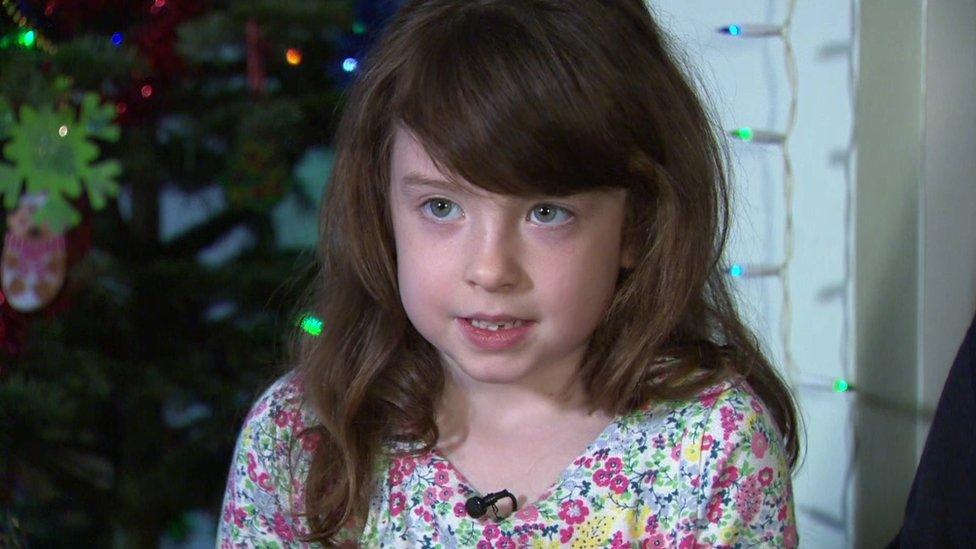
- Published10 July 2015
- Published17 June 2015
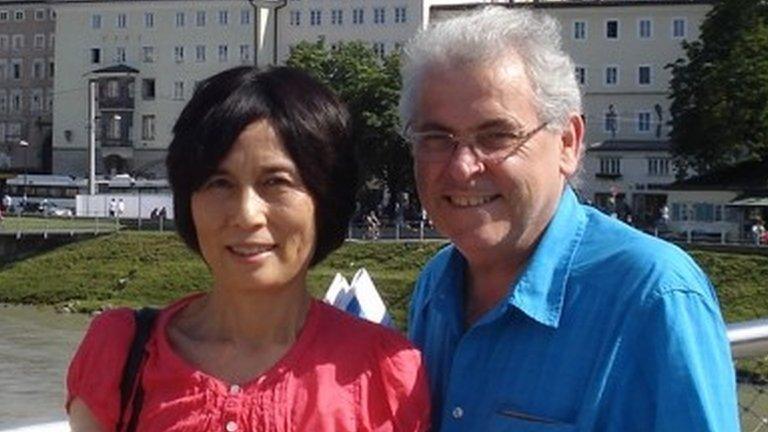
- Published9 June 2015
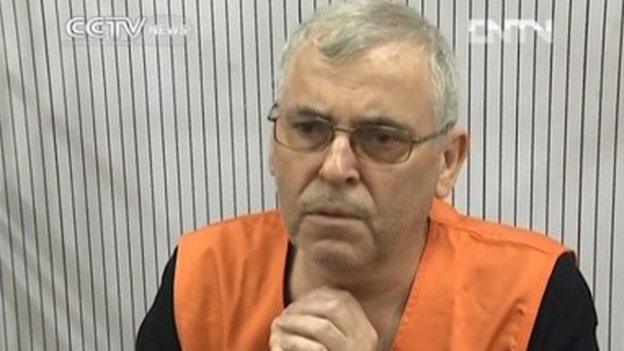
- Published8 August 2014

- Published14 July 2014
